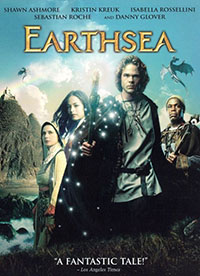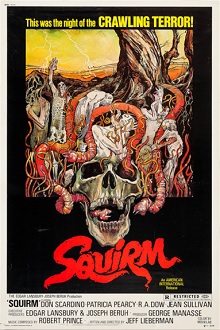Introduction
Plot Summary
The Good
The Bad
Judgment
Closing
Introduction
When I first saw the previews for This Means War I thought that Hollywood had finally moved onto something new in the rom-com genre. I thought that the usual romantic comedy formula had been done away with and things had begun to progress onto something more substantial. I thought, for a while, that we all had a bromedy (bromantic comedy) on our hands.
Of course, thoughts and reality aren't always in accord, I thought as I sat down to watch this movie to round off All-Request August. Let's see just how much my thoughts and the reality of this movie jive.
Back to Top
Plot Summary
Tuck (Tom Hardy) and FDR (Chris Pine) are two of the CIA's top agents. They're great in the field together, and back at the office they're some of the most popular guys in the agency. But there's something that can tear even the closest of friends apart, something that can be more heinous that a plot to destroy the world, more scheming than any mastermind looking to destroy the diamond market, or more maniacal than a mogul interested in assassinating the leader of the free world. A woman.
Lauren (Reese Witherspoon) is busy at being a product testing executive. Maybe a little too busy, or so her friend Trish (Chelsea Handler) thinks. So she creates a profile for Lauren on an internet dating site - and, seeing the same ad on television, so does Tuck!
But little do either of them know that this will lead to a three-way meeting that might just tear apart the two fastest of friends and put the whole of America at risk. In fact, if they can't resolve their differences it might be more than just these two rivals in love declaring: This Means War!
Back to Top
The Good
Full disclosure, I thought right. This Means War does actually do things a little bit differently from the standard modern romantic comedy. Rather than focusing on a couple who has lost their spark, this movie focuses on two friends and what happens when a woman comes between them. Plus, we do see a little bit of a bromance between Tuck and FDR.
It also sort of portrays some strong, independent women. In fact, all of what it says that's positive can be summed up in Lauren's friend's advice: "Don't choose the better guy, choose the guy that's gonna make you the better girl."
What's more, throughout the movie we actually see some real character growth in FDR. He starts off as a stereotypical American alpha male, but he winds up completely changed (more or less) but for the better. In essence, we actually see him grow up over the course of the film in a lot of ways.
Speaking much more broadly, the movie's premise of spies using their resources to woo the same girl could be interpreted as an evolution of Cyrano de Bergerac's romantic-helper sub-plot. However, instead of both friends working together, or in any otherwise strictly co-operative way, they act on a much more individual basis.
They both rely on teams to gather information on each other and on Lauren, but they use all of this information as individuals, subjecting the raw data to their own analysis, thoughts, and figurings. In that way, then, the premise of this movie lends itself well to a celebration of the power of the individual in the digital age (if say, we replace the teams of data miners with other people who provide people with information, like say, bloggers).
Add to all of this some frenetic action sequences that are intense but easily followed and all-around well done, and you've got yourself an incredible movie.
Back to Top
The Bad
However, in the case of This Means War you'll get all of that and about 30 minutes more. Or rather, too much.
The movie hums along nicely through its first act and most of its second act, with nary a care. There's some morally dark, privacy invasion issues raised by Tuck's and FDR's bugging Lauren's home (while she's in it, no less), but that sort of thing is built into the premise.
What's harder to get past is how the movie deteriorates as the third act comes into view and then crumbles entirely by the time it ends.
Up until the penultimate climactic scene where Lauren, Tuck, and FDR are all together for the first time the movie has, though slightly awkwardly, shown character growth, suggested that it's okay for women to be bold and independent, and made the wise-cracking friend role more of a wise-friend role. But, once the three meet all of this falls apart.
In this scene, Lauren becomes a hyperventilating mess, her friend goes back on everything she's said up to that point by saying "I told you you shouldn't have dated two guys at once," after towing the exact opposite line for the first 2/3 of the movie, and Tuck and FDR are broken up without any real threat to their relationship since the movie's big bad has been spotted and it's still their mission to take him down. What's more, the big bad kidnaps Lauren and Trish, as if they're perfectly helpless damsels in the face of gritty reality - contrary to what the rest of the movie has suggested.
What makes this reversal worse is that the movie telegraphs that it's coming almost from minute one.
The emphasis throughout the first two acts is firmly placed on the romantic stuff at the cost of the spy stuff - but the big bad that's out to get Tuck and FDR for what they did in the opening scene is still there, lurking just out of frame and begging to have his part of the plot resolved. This fulfilment comes in a rush of high-paced action. Up to this point the action's just been drizzled over the two agents' comic rivalry. So it's clear that he's going to be the focus of act three.
Between Tuck and FDR, FDR gets far more character development. We learn about his past, a little of what motivates him at present, and we actually see him change over the course of the movie.
However, Tuck remains largely the same as a character. Only his circumstances change, since after it's revealed that he's a secret agent his estranged wife and kid - whom he had formerly convinced that he was a travel agent - come right back to him, no questions asked whatsoever.
And as far as Lauren's character goes, she is portrayed as a successful career woman, but we also get glimpses of her being hung-up on an ex whom she followed to the city while they were still dating. This situation could be made to bolster her as the strong female figure that she more or less is, but at the same time this is clearly an illusion.
Without ever getting a reason for it, we're shown that she still has a thing for this ex in spite of his being engaged and, by the very rules of the movie, thus unattainable. You could argue that this unattainability makes her want him back all the more, but since it's not clear what made him so special in the first place Lauren's jealousy and desire aren't given enough motivation to take full advantage of the unattainability angle.
The negative transformation of Lauren's friend is a little less predictable. Yet, just before she turns into the "I told you so" character that rom-coms are well known for having, we see her in a setting that's more everyday than those in which we've seen her previously. This is also the scene where she gives Lauren her sage advice.
So what's the situation? Helping her son repair a baseball mitt, while sitting on the couch in her living room and talking about how she loves her husband because he's her own man, despite his faults. This is sweet and all, but it entirely contradicts the firebrand that we've seen her as before. This isn't to say that mothers can't simultaneously be firebrands and motherly (real people are complex, of course), but there's no build up to this scene.
Further, it suggests something curious about marriage that the rest of the movie works towards as well.
The motherly scene with Trish, Tuck's lack of development, FDR's full-on development, and Lauren's loosening up all suggest that marriage is some sort of solidifying ritual. That it somehow locks people into what's truly best for them and that this means, to varying degrees, that growth is no longer necessary for a person.
This is why I've taken this away from the movie: all of its unmarried characters change gradually, we see them grow, evolve, and become something different from what they were at the movie's beginning. Conversely, all of the characters who are married do not change (Trish's sudden change is out of character, but not unpredictable since the movie is constantly reminding us that she's married and has a kid).
It may not have been the movie's intent, but since we're given two main characters (Tuck and FDR) it's hard to not compare the two. And any comparison shows that while unmarried the one changes, and while married the other does not change.
Back to Top
Judgment
The story of two men competing for one woman is definitely nothing new.
Chaucer's Knight tells the story of Arcite, Palamon, and Emily in the Canterbury Tales - written in the latter half of the 14th century. And Chaucer didn't create the Knight's Tale from pure inspiration, it was a shortened version of a story by Giovanni Boccaccio, which itself probably has even deeper historical roots.
However, This Means War does show some character growth within its love-triangle.
Yet, at the same time, it's kind of surprising that this movie got made. Especially now, in a world of phone tapping and drone strikes, and all manner of privacy invasions being made possible by the internet and the degree to which we're all connected to it. It would've made much more sense had they explicitly addressed this in the movie rather than just calling it "immoral" right before an action sequence.
The movie also promotes some of the old curious romcom axioms: marriage saves, and women who are all about their career only mellow out once they meet a man.
There is potential in This Means War, but all of that potential, like an unsatisfying story draft, gets crumpled up by the end of the second act and intricately tossed into a decorative garbage can in the third.
So, Freya, this one may yet moan and move about on the littered ground of the Field of Fallen Films, but don't let yourself be fooled into raising it up. Ultimately, it's just muscle memory at work.
Back to Top
Closing
Next week, the blog update continues, but depending on how much of it gets done over the weekend, regular updates might just return to this blog. Regardless of my progress through that to do list, however, I'll be giving In The Name of the King a look next Friday, and am hoping to find something hospitable within it.
Back to Top

















